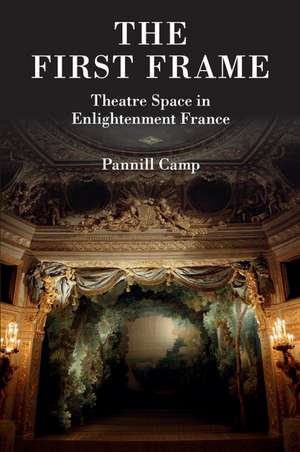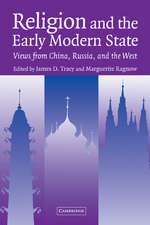The First Frame: Theatre Space in Enlightenment France
Autor Pannill Campen Limba Engleză Paperback – 13 dec 2017
| Toate formatele și edițiile | Preț | Express |
|---|---|---|
| Paperback (1) | 285.75 lei 43-57 zile | |
| Cambridge University Press – 13 dec 2017 | 285.75 lei 43-57 zile | |
| Hardback (1) | 424.05 lei 43-57 zile | |
| Cambridge University Press – 3 dec 2014 | 424.05 lei 43-57 zile |
Preț: 285.75 lei
Nou
Puncte Express: 429
Preț estimativ în valută:
54.68€ • 56.74$ • 45.71£
54.68€ • 56.74$ • 45.71£
Carte tipărită la comandă
Livrare economică 17-31 martie
Preluare comenzi: 021 569.72.76
Specificații
ISBN-13: 9781107437401
ISBN-10: 1107437407
Pagini: 300
Ilustrații: 30 b/w illus.
Dimensiuni: 150 x 228 x 17 mm
Greutate: 0.4 kg
Editura: Cambridge University Press
Colecția Cambridge University Press
Locul publicării:New York, United States
ISBN-10: 1107437407
Pagini: 300
Ilustrații: 30 b/w illus.
Dimensiuni: 150 x 228 x 17 mm
Greutate: 0.4 kg
Editura: Cambridge University Press
Colecția Cambridge University Press
Locul publicării:New York, United States
Cuprins
Introduction: the 'first frame' of Enlightenment theatre space; 1. The divided scene of theatre space in the Neo-classical era; 2. The theatrical frame in French Neo-classical dramatic theory; 3. Enlightenment spectators and the theatre of experiment; 4. Theatre architecture reform and the spectator as sense function; 5. Optics and stage space in Enlightenment theatre design; Epilogue: modern spectatorial consciousness; Appendix: dedicated public theatres built in France, 1752–90.
Recenzii
'… his innovative approach and finely marshalled erudition make this sophisticated study of great value to those interested in European theatre history.' Thomas Wynn, French Studies
Notă biografică
Descriere
A unique account of the way architects, dramatists, and philosophers transformed theatre space in the eighteenth century.












